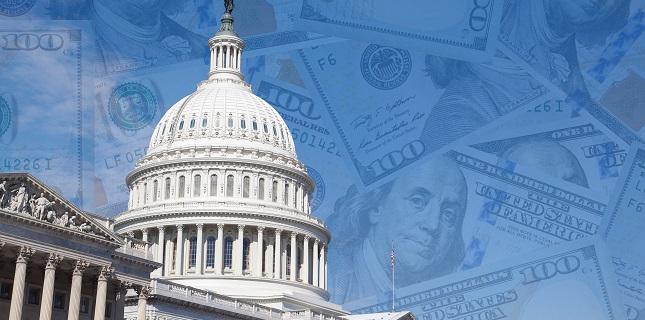ACC Political Action Committee Pauses Political Donations After Capitol Attack
The pause is temporary, and the group says it will continue to support lawmakers from both parties to advance CV care.

Leaders of the political action committee of the American College of Cardiology (HeartPAC) met last night to discuss whether a change is needed in how it donates money to politicians, amidst a nationwide reckoning following the violent storming of the US Capitol on January 6.
Moving forward, the group “is temporarily pausing all individual and leadership contributions. We will take this time to reassess and strengthen the scorecard used to evaluate potential HeartPAC recipients,” according to a statement released Friday by Sandra Lewis, MD, and Andrew Miller, MD, HeartPAC’s chair and vice chair, respectively.
“No contributions have been made in 2021, and none will be made until the committee completes this careful process,” they continue. “However, the HeartPAC will continue to support larger Democratic and Republican party committees as part of our ongoing commitment to working with members of Congress, regardless of party affiliation, to advance quality cardiovascular care on behalf of all ACC members and their patients—a commitment that is even more critical in light of the COVID-19 pandemic.”
A week after the violent riots, Trump was impeached by the US House of Representatives for his role in encouraging supporters to gather and march to the US Capitol building, after he repeatedly alleged—baselessly—that the election was “rigged.” As the political fallout continues, there have been increasing calls for companies and other organizations to reconsider their political donations, and some have responded by saying that they will make changes in how they donate moving forward. A story in the Washington Post describes how “the 147 Republican lawmakers who opposed certification of the presidential election earlier this month have lost the support of many of their largest corporate backers—but not all of them.”
I don't think so @ACCinTouch . No more inbox clutter, no more wasteful paper journals, and no more support for sedition. I'll give the $910 to our food bank. pic.twitter.com/mFJBPfXcLR
— Clinically Conservative Cardiologist (@DavidLBrownMD) January 15, 2021
For its part, the ACC’s HeartPAC gave $470,000 to political candidates during the most-recent election cycle, with a slight majority of the donations going to Democrats (52.34%), according to information on OpenSecrets.org.
Some of the names on the recipient list were among the loudest voices as Republicans sought to overturn the election results. HeartPAC gave a total of $13,000 to four Republican senators who were part of the group of 11 lawmakers who announced prior to the certification of the electoral votes on January 6 that they would vote to reject electors from several disputed states—Marsha Blackburn (R-TN), Steven Daines (R-MT), James Lankford (R-OK), and Roger Marshall (R-KS).
The certification process was interrupted by the violence at the Capitol building, and when lawmakers reconvened, the only senator of those four who voted to reject any electors was Marshall, objecting to electors from Arizona and Pennsylvania. Another senator who received $1,000 from HeartPAC, Cindy Hyde-Smith (R-MS), also voted against certifying the results from those two states.
On the House side, HeartPAC gave a total of $85,500 to dozens of Republican representatives who voted against certifying the electoral results from Arizona, Pennsylvania, or both. That list includes Kevin McCarthy (R-CA), House Minority Leader, and Mo Brooks (R-AL), a vocal Trump supporter who spoke at the rally that preceded the storming of the Capitol building.
The ACC has faced some blowback for its support of politicians who have been linked to what happened at the Capitol. David Brown, MD (Washington University School of Medicine, St. Louis, MO), suggested on Twitter that he wouldn’t be paying his annual ACC dues at least partly related to the issue: “No more inbox clutter, no more wasteful paper journals, and no more support for sedition. I'll give the $910 to our food bank.”
Jacqueline Green, MD (The Heart Center, Huntsville, AL), responded that “ACC PAC contributes to candidates in elections who support the goals of the ACC and improving cardiovascular care. Certainly some of these candidates have become controversial more recently, and the decision to support them in the future will be carefully scrutinized.” IN response, Brown pushed back against the use of the term “controversial” in relation to recent events, and other physicians called on the ACC to take a stronger stand.
Other physicians affiliated with the ACC sought to quell the furor. ACC President Athena Poppas, MD (Lifespan Cardiovascular Institute and Brown University, Providence, RI), said on Twitter, “ACC stands for many thing[s] in science, education, and quality. But paramount is diversity, inclusion, respect, tolerance, unity, and advancing patient-centered care and outcomes. It is mission critical to come together now.” She followed that up with a fuller statement on the importance of unity earlier this week, in which she writes: “We are all shocked by the violence and abhorrent disregard for the moral and legal principles of a democratic civil society exhibited by the mob that attacked the US Capitol on Jan. 6.”
The statement released Friday indicates that HeartPAC will be reevaluating its processes for doling out political donations in the future.
“It's important to note that this is not the end of a conversation, but rather the continuation of an ongoing dialogue that is essential not only in light of recent events but because our world and our society are constantly learning and changing,” the ACC's Lewis and Miller write. “We must always strive and seek to be better and do better for the cardiovascular community and for our patients. It's not work that will happen fast, but it is work we are committed to doing. We will always be deliberate and act with circumspection, balancing how actions—ours and others—impact our members and most importantly the communities and patients we serve. We will not always agree on a course of action, but we are all working together toward the same goal.”
Other medical groups have weighed in on this issue as well. A spokesperson for the American Heart Association told TCTMD that the group “does not make political contributions of any kind to any elected official, candidate, or political party. Nor do we have a political action committee. We are strictly nonpartisan in our work in support of evidence-based public policies that promote longer, healthier lives.”
The American Medical Association (AMA), on the other hand, has a PAC that gave $930,000 to political candidates in the most-recent election cycle, leaning toward Democrats (57.31%). Many of the donations, however, went to Republican politicians who have been vocal about disputing the election results and who voted against certification of some electoral votes.
In a statement, the AMA said the process for considering budgeting and contribution decisions has not yet begun for the 2021-2022 cycle, adding, however, that “the AMPAC board’s deliberative process will include a review of the recent electoral college certification vote and the violent attacks that occurred at the US Capitol.”
Todd Neale is the Associate News Editor for TCTMD and a Senior Medical Journalist. He got his start in journalism at …
Read Full Bio




Comments